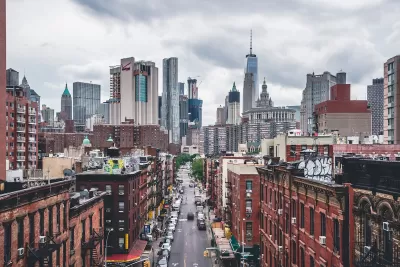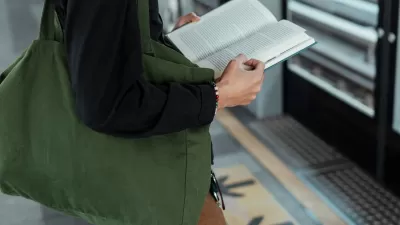One author offers a framework for resilience that rethinks common assumptions about the inevitability of cities as we know them.

In a piece for Next City, Stephanie Wakefield outlines key points from her new book, Miami in the Anthropocene: Rising Seas and Urban Resilience, which calls for a rethinking of the role urban places play in building resilience and mitigating the impacts of climate change.
With the urban envisioned as the inevitable form of the twenty-first century, it seems the only question mark is whether urban spaces and processes will be more or less resilient or equitable, smart or inclusive.
Wakefield proposes an alternate paradigm for approaching the future of cities, noting that the urban form as we know it may not survive changing conditions. “Will and should the urban as we know it actually survive the upending impacts of climate change or human responses?”
Wakefield ponders, “Rather than an endless expanse of cities and urbanization processes with seemingly no terminus — the latter destined to be but fodder for ever greater resilience of the former — might the Anthropocene’s human and nonhuman dislocations produce other spaces, processes and imaginaries entirely?”
FULL STORY: Theorizing Cities Under the Anthropocene

Planetizen Federal Action Tracker
A weekly monitor of how Trump’s orders and actions are impacting planners and planning in America.

San Francisco's School District Spent $105M To Build Affordable Housing for Teachers — And That's Just the Beginning
SFUSD joins a growing list of school districts using their land holdings to address housing affordability challenges faced by their own employees.

Can We Please Give Communities the Design They Deserve?
Often an afterthought, graphic design impacts everything from how we navigate a city to how we feel about it. One designer argues: the people deserve better.

The EV “Charging Divide” Plaguing Rural America
With “the deck stacked” against rural areas, will the great electric American road trip ever be a reality?

Judge Halts Brooklyn Bike Lane Removal
Lawyers must prove the city was not acting “arbitrarily, capriciously, and illegally” in ordering the hasty removal.

Engineers Gave America's Roads an Almost Failing Grade — Why Aren't We Fixing Them?
With over a trillion dollars spent on roads that are still falling apart, advocates propose a new “fix it first” framework.
Urban Design for Planners 1: Software Tools
This six-course series explores essential urban design concepts using open source software and equips planners with the tools they need to participate fully in the urban design process.
Planning for Universal Design
Learn the tools for implementing Universal Design in planning regulations.
Borough of Carlisle
Smith Gee Studio
City of Camden Redevelopment Agency
City of Astoria
Transportation Research & Education Center (TREC) at Portland State University
City of Camden Redevelopment Agency
Municipality of Princeton (NJ)





























